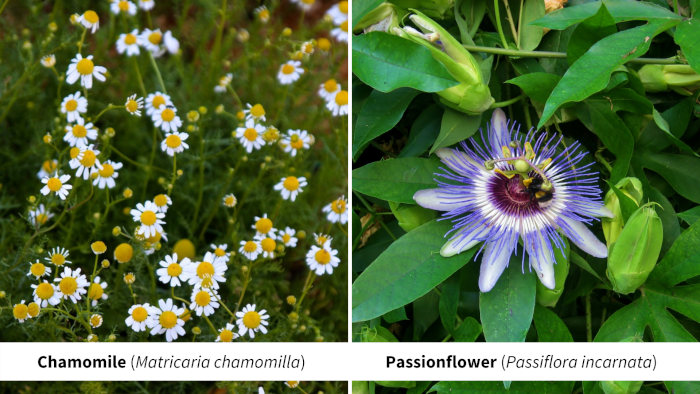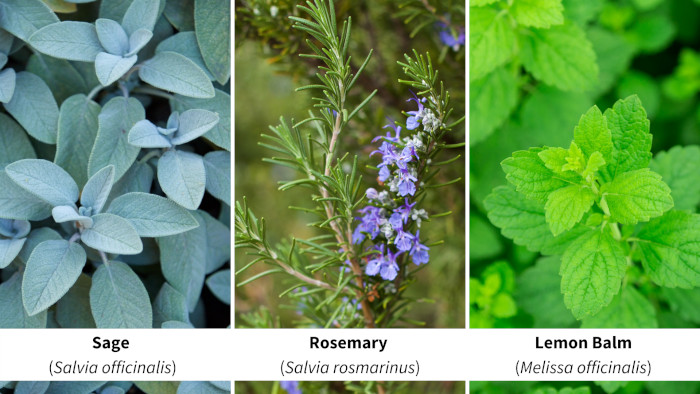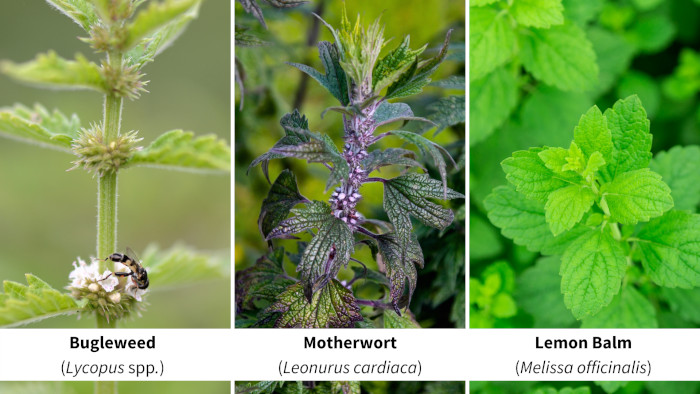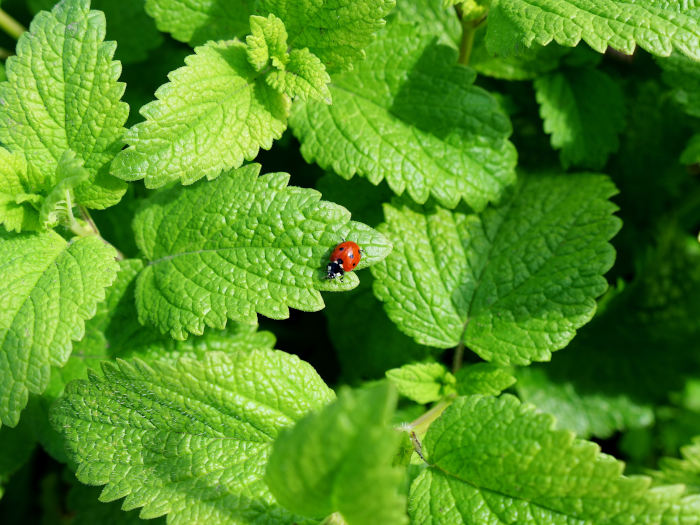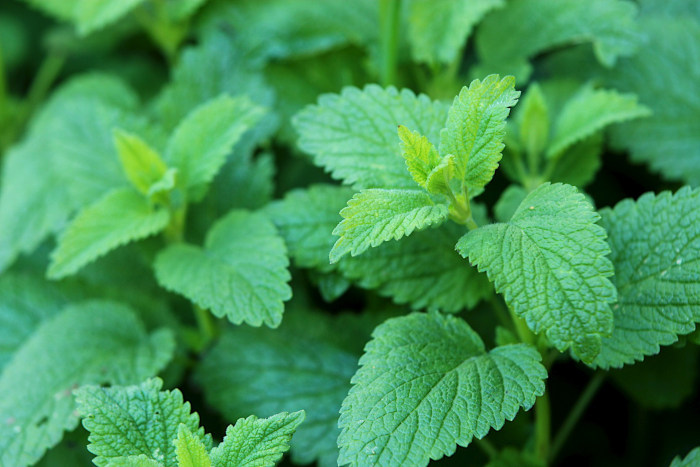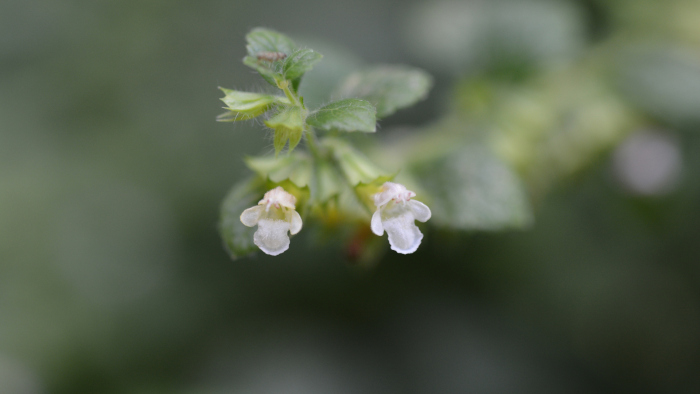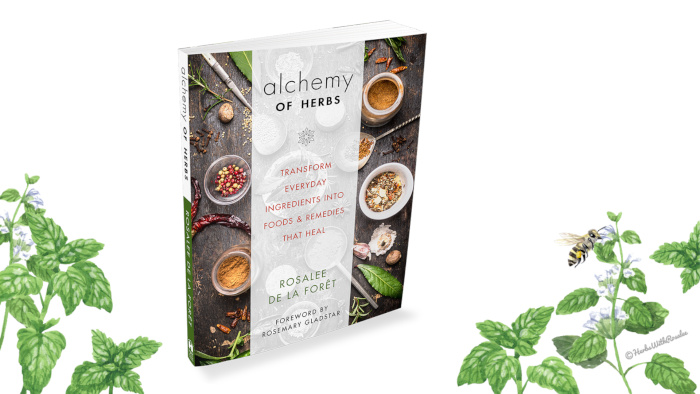Get weekly tips, recipes, and my Herbal Jumpstart e-course! Sign up for free today.
Lemon Balm Benefits
Share this! |
|
Calming and delicious while also being powerfully medicinal, there are so many lemon balm benefits! In this video I share the many reasons you would want to welcome lemon balm into your life. I also look at some very misunderstood lemon balm side effects. You don’t want to miss that!
-- TIMESTAMPS --
- 00:00 - Introduction to lemon balm (Melissa officinalis)
- 02:04 - Lemon balm for stress and sleep
- 03:41 - Cognitive benefits of lemon balm
- 04:43 - Lemon balm’s effects on the thyroid and heart
- 05:59 - Antiviral and immune supportive qualities of lemon balm
- 07:36 - Lemon balm for relieving pain and aiding poor digestion
- 08:41 - Lemon balm benefits for children
- 10:41 - Lemon balm protects against radiation
- 12:33 - The lemon balm plant
- 13:40 - Lemon balm uses
- 15:27 - Lemon balm tea recipes
- 18:18 - Lemon balm side effects and safety
Thanks for watching my Lemon Balm Benefits video!
Are you ready for the best lemon balm tea recipes?
Yes! I would love the
Lemon Balm Tea Recipe Cards
+
free access to the
Herbal Energetics Jumpstart Course.
Sign me up!

Transcript from the Video: Lemon Balm Benefits
Hello! I’m Rosalee de la Forêt, herbalist, teacher, and bestselling herbal author. I'm here to share trusted herbal knowledge so that you can get the best results when using herbs for your health.
I love lemon balm! So I often talk about lemon balm benefits and I get a lot of questions about lemon balm uses and how to make lemon balm tea. Do you use fresh or dried lemon balm? Do you steep it for a short time or for a long time?
All great questions! So let’s dive in!
Lemon balm spreads its cheer just as it spreads in the garden … far and wide! Named for its lemony aroma/flavor and its ability to heal and soothe (which is the definition of balm), this unique mint family member is one of my most reached-for herbs.
Native to southern Europe, lemon balm’s genus, Melissa, comes to us from Greek, meaning "honey bee" or simply "honey." In Greek mythology, Melissa was a nymph who shared the wisdom and honey of the bees. Lemon balm is a favorite plant of the bees. Not only does it produce lots of nectar, it’s also said to keep bees from swarming.
In this article you’ll see that there are many lemon balm benefits, from supporting the nervous system, to being antiviral and even for protecting against the damage done by radiation and too much sun exposure.
Lemon Balm Benefits for Stress and Sleep
Lemon balm is delicious and calming. Classified as a relaxing nervine,
it is called upon for many nervous system issues, ranging from stress to
insomnia.
I often like to combine it with chamomile (Matricaria chamomilla) and/or passionflower (Passiflora incarnata).
Lemon balm has been in the herbalist apothecary for thousands of years, and for good reason. It works!
Researchers have also been studying this herb to understand its benefits.
One study looked at the combined benefits of lemon balm and Nepeta menthoides (a mint closely related to catnip).1
The study showed that people taking the herbal formula had decreased levels of insomnia as well as lowered levels of depression and anxiety.
Lemon balm can be used as a gentle sedative to promote sleep and it’s often combined with other herbs for this purpose.
In one clinical trial, a combination of valerian (Valeriana officinalis) and lemon balm was shown to reduce symptoms of sleep disorders during menopause.2
Several clinical trials in the early 2000s looked at lemon balm benefits for people with dementia or Alzheimer’s disease. One trial showed that those taking lemon balm extract had less agitation than those taking the placebo.3 Another showed that those using lemon balm aromatherapy had improved quality of life, reducing the time they spent being socially withdrawn and increasing the time spent in constructive activities.4
While lemon balm isn’t a cure for this devastating disease, it offers a lot of benefits for improving the quality of life for people with Alzheimers!
Lemon Balm Benefits for Cognition
In addition to soothing stress and promoting sleep, lemon balm has long
been heralded as an herb to support cognitive health or, as Maude Grieve
wrote in the 1930s, to strengthen the brain.
In one small 2018 pilot study, 44 healthy people with an average age of 61 were given either a combination of sage (Salvia officinalis), rosemary (Rosmarinus officinalis), and lemon balm or a placebo for two weeks, and then asked to perform word recall tests to measure memory enhancement.
The study indicated that this mint family formula was more effective than placebo at improving memory recall and the researchers called for more studies to look at lemon balm’s effects on broader cognitive health.5
Lemon balm has also been shown to have benefits for young, healthy adults. In one small trial, participants given lemon balm had better accuracy and attention and rated themselves as more calm.6
Lemon Balm Benefits for the Thyroid and Heart
Heart palpitations, nervous tension, insomnia, and hyperactivity are all
classic indications for lemon balm. These combined symptoms describe
common symptoms of an overactive thyroid gland.
The combination of lemon balm, bugleweed (Lycopus spp.), and motherwort (Leonurus cardiaca) is a classic western formula for a hyperactive thyroid.
Since I am mentioning the thyroid I want to note that there’s some common misunderstandings about lemon balm’s effects on the thyroid with many people mistakenly believing it may do harm to someone with an underactive thyroid. I’ll share more about this myth in a few minutes.
Lemon balm can protect the heart in numerous ways. It modulates inflammation, which is a major cause of heart disease and has been shown to reduce harmful lipid levels in people diagnosed with type 2 diabetes.
A clinical trial showed that lemon balm “is safe and effective in improvement of lipid profile, glycemic control, and reduction of inflammation” in patients with type 2 diabetes.7
Is your heart a flutter? Another study has shown significant benefit from lemon balm for decreasing benign heart palpitations.8
Lemon Balm Benefits for Immune Support
Lemon balm has antiviral qualities and can benefit the immune system in numerous ways.
Lemon balm is a great choice when dealing with upper respiratory symptoms like the common cold or influenza. As a mild antispasmodic, lemon balm can soothe a spasmodic cough. As a relaxing diaphoretic, lemon balm can support the fever process by releasing heat. Sometimes when someone has a fever they have some irritation or agitation, and lemon balm is well matched for this as it’s also wonderfully calming. Because of its delicious flavor this is a great herb for kids.
Lemon balm is also antiviral. Several clinical trials have studied lemon balm’s ability to address outbreaks of herpes simplex, the virus that causes cold sores on the lips and genitals.
One in vitro study looked at the effect lemon balm may have on drug-resistant strains of herpes simplex virus and reported that the “penetration of herpes viruses into cells was inhibited by Melissa extract at 80% and 96% for drug-sensitive and drug-resistant viruses, respectively.”9
An older study found that lemon balm cream applied to genital herpes healed the sores faster than placebo and relieved many of the uncomfortable symptoms.10
With this promising research, it would be great to see new and larger studies performed.
My mentor, herbalist KP Khalsa recommends lemon balm applied externally to eruptions of chicken pox (Herpes varicella-zoster), a virus closely related to herpes simplex.
Lemon Balm Benefits for Pain and Digestion
Lemon balm is a delicious, aromatic, and carminative herb that broadly supports healthy digestion. And, because it tastes so wonderful, it makes a lovely after-meal tea. I’ll share my favorite after-dinner tea in just a moment.
Lemon balm can also help with more serious digestive woes such as stagnant digestion and abdominal cramping.
As a mild antispasmodic, lemon balm can help relieve tension headaches and other mild pain due to muscle tension.
Lemon balm can also be used to relieve the pain associated with menstrual cramping.
One clinical trial found that young women taking 1200 mg of lemon balm daily had significantly fewer PMS symptoms than those taking placebo.11
When you take lemon balm matters.
Another study showed that young women taking 330 mg of lemon balm three times daily at the beginning of their period had significantly less pain during menstruation than those taking placebo.12
Lemon Balm Benefits for Children
Many years ago I was out hiking in an old-growth forest with a group of people in the Pacific Northwest. We were following an overgrown trail covered with giant ferns and other undergrowth. While enjoying the giant trees towering above us, someone accidently stepped on a wasps’ nest. We were quickly surrounded by these powerful stinging insects and I escaped but got a handful of nasty stings in the process.
I looked around for plantain, which is famous for soothing bug bites, but I soon found lemon balm instead. I chewed this up, applied it to the stings, and watched in amazement as the pain and swelling was greatly reduced.
Little did I know then that lemon balm has a long history of use for topical relief of bites and stings. Dioscorides (who lived from 40-90 AD) wrote in his classic book, De Materia Medica,
“A decoction of [lemon balm] leaves is good for those touched by scorpions, or bitten by harvest spiders or dogs.”
Since that day on the trail, I’ve used it numerous times to reduce the pain and discomfort for children who’ve been stung by bees or other insects. It works wonderfully!
Lemon balm tastes delicious and is effective for adults and children alike. Its lovely taste makes it a favorite herb for kids.
Lemon balm has even been used for children who are teething to soothe and calm this sometimes painful process. I like to combine it with chamomile (Matricaria chamomilla).
Lemon balm can also help small children with colic.
One study showed that a combination of lemon balm, chamomile, and probiotics taken for a month was more effective than a pharmaceutical drug for reducing the crying times of children diagnosed with colic.13
I think there are a lot of exhausted parents and colicy children who would love to know about lemon balm!
Lemon Balm Benefits Against Radiation
What I’m about to share about lemon balm and radiation is one of my favorite things to share about because it shows us just how powerful and relevant herbs are today!
Radiation exposure from x-rays can cause DNA damage and induce oxidative stress. Because the damage is cumulative, this is especially problematic for people regularly exposed to x-rays.
In one study, 55 radiology staff members tested for oxidative stress markers. Then they were asked to drink a simple lemon balm tea, twice a day, for thirty days. After the 30 days they were tested again.
Researchers recorded numerous improvements in oxidative stress markers, including a “marked reduction in plasma DNA damage.”14
Why this isn’t more widely shared with people regularly exposed to x-rays is a mystery to me! I also think about other applications like people who fly a lot and are exposed to low levels of radiation in flight. If you know someone whom this might benefit then be sure to share this video!
Ultraviolet (or UV) radiation is one of the leading causes of skin cancer and photoaging (which are changes to the skin induced by chronic exposure to ultraviolet/UV sunlight).
One in vitro study showed many lemon balm benefits for protecting the skin, including a decrease in UVB-induced oxidative stress production and a reduction in UV-induced DNA damage.15
Too often people think of herbs as antiquated or irrelevant in the modern world, but nothing could be further from the truth. As you can see, from antiviral properties to protecting against DNA damage caused by x-rays and the sun, lemon balm is a powerful herb for us today!
The Lemon Balm Plant
Native to southern Europe, lemon balm thrives in partly shady areas with
moist soils. It can also grow in the full sun. If you grow lemon balm
then it is recommended to grow it in containers because it loves to
spread far and wide when growing in ideal conditions.
Lemon balm is in the mint family and has many attributes or identifying features common to this family.
It has square stems and leaves arranged opposite each other on the stem.
Lemon balm flowers are white and have the classic “lipped” look of mint family flowers. It typically flowers from June to September and is a perennial herb.
If you crush a leaf in your fingers, you’ll be introduced to the wonderful scent of lemon balm. In the past it was considered a “strewing herb,” which is an herb hung in the rafters or strewn on the floor or ground to emanate a pleasant scent.
To harvest lemon balm, cut it at a leaf axil just before it goes to flower. You can often harvest lemon balm 2-3 times during the growing season.
Lemon Balm Uses
There are so many fun ways to work with lemon balm!
One of the simplest ways is to enjoy it as a delicious tea. In the next section I’ll share my favorite lemon balm tea recipes.
In addition to teas you can work with lemon balm as a tincture or alcohol extract. Many herbalists prefer to tincture lemon balm when fresh.
It can also be made into an herbal infused vinegar. I like to make lemon balm oxymels with vinegar and honey, which then make a delicious cooling drink in the summer.
Lemon balm can be infused into oil which can then be a base for lip balms and creams to protect the skin or to heal and prevent herpes sores.
Fresh lemon balm infused into honey is a special treat.
Teething youngsters may like to gnaw on a washcloth that has been soaked in lemon balm tea. Children and adults will love lemon balm popsicles.
Don’t forget to use lemon balm in the kitchen! It goes well with meats, fish, and vegetables, in sauces, sprinkled in salads, added to fruit salads, or made into an herbal butter.
Lemon balm is distilled into an essential oil but is quite expensive. It can also be readily found as a hydrosol.
Here are my dosage suggestions for lemon balm:
- Tea: 1 teaspoon to 1 ounce of dried herb made into tea per day
- Tincture (fresh herb): 1:2, 45% alcohol, 3-5 mL, 3 to 5 times per day
For more ways to work with lemon balm, see my book, Alchemy of Herbs: Transform Everyday Ingredients into Foods and Remedies that Heal.
Lemon Balm Tea
Lemon balm makes a lovely tea. In fact, it’s probably my most favorite herbal tea.
One of the things I love the most is how versatile lemon balm is! You can work with the plant both fresh and dried. It also has different benefits depending on how long you steep it and whether you use hot water or cool water!
To show you the many ways of making lemon balm tea I have three recipes to share with you.
The first example is one of my favorite ways to cool down in the summer months.
To make this tea you simply infuse fresh lemon balm into room temperature water, let it sit for at least 30 minutes, then enjoy. You can also put this in the fridge overnight for a cooling drink the next day. I often make this for when I’m traveling. Not only does it taste great but it can also help with any nervousness or travel jitters. I’m sharing this as a simple, or single-herb, recipe but you can add other fresh herbs from the garden or even cucumber and lemon.
This second tea is one of my favorite teas, I probably drink this more than any other tea! I love it as an after-dinner tea as it’s delicious, calming and supports digestion.
The ingredients are:
- 1 tablespoon dried lemon balm
- 1 tablespoon dried chamomile flowers
- 1 tablespoon dried rose petals
- 1 tablespoon dried oatstraw
- Pinch of dried lavender flowers
Steep the herbs in 14 ounces of hot water, covered, for at least 5 (or up to 20) minutes.
Strain. Add honey if desired.
Enjoy!
My last tea example uses a lot more lemon balm and steeps it for a long time. The result is a very calming lemon balm tea that can nourish the nervous system.
For this recipe you use 1/2 cup of finely crumbled dried lemon balm and 3 1/2 cups of water
Place the lemon balm in a 1-quart jar or teapot.
Fill the jar with just-boiled water.
Add honey or stevia if desired.
Let steep, covered, for 4 hours or overnight.
Strain.
Drink within 24 hours.
As you can see, lemon balm is very versatile depending on how you would like to work with it!
If you would like printable recipe cards for these lemon balm recipes you can sign up below to download your free copy!

Lemon Balm Side Effects and Safety
There’s a lot of fear and misinformation regarding lemon balm’s safety.
I want to be clear that lemon balm is a very safe plant! The Botanical Safety Handbook gives lemon balm its highest safety rating.
And, while many people are quick to say that lemon balm negatively affects people with hypothyroidism, there is no supporting evidence for this. Instead it’s become what we call an “herban myth”, something that is repeated often with no basis.
What we do know is that a handful of poorly designed animal studies have shown some issues. I never cite animal research in my herbal teachings because I think they are unethical and, oftentimes, downright cruel. But I am going to break that rule and share this study with you as a way to dispel some of the fear around lemon balm.
In 1982 researchers intravenously administered 25mg of freeze dried lemon extract to rats. This resulted in reduced serum and pituitary gland levels of TSH. Those levels returned to normal after administration.
To be clear, this study, and a couple other animal and petri dish studies have had some inconclusive results regarding lemon balm and the thyroid. Not only are animal studies often unethical, they also don’t imply the same effect will be seen in humans. It’s also very important to know that there has not been one single human case study reported on lemon balm negatively affecting the thyroid.
I’ve spoken to many herbal practitioners who regularly recommend lemon balm for people with a hypothyroid with no ill effects.
So it’s time to put those fears to bed! Lemon balm is a very safe plant for most people. Of course rare or idiosyncratic reactions are always possible. A good rule of thumb is to start with low amounts when trying a new herb to make sure it’s a good match for you.
Lemon balm offers us so many benefits! As one of my teachers, Cascade Anderson Geller said,
“Lemon balm is a powerful relaxing herb, good for the heart, for the soul, for babies, for the elderly and everyone in between.”
If you enjoyed this article on lemon balm benefits and you value trusted herbal information, then I hope you’ll stick around! The best way to do so is to subscribe to my newsletter above so you can be the first to get my best herbal insights and recipes.
See you next time.
Citations for Lemon Balm Benefits
Click to show/hide.

Rosalee is an herbalist and author of the bestselling book Alchemy of Herbs: Transform Everyday Ingredients Into Foods & Remedies That Healand co-author of the bestselling book Wild Remedies: How to Forage Healing Foods and Craft Your Own Herbal Medicine. She's a registered herbalist with the American Herbalist Guild and has taught thousands of students through her online courses. Read about how Rosalee went from having a terminal illness to being a bestselling author in her full story here.
